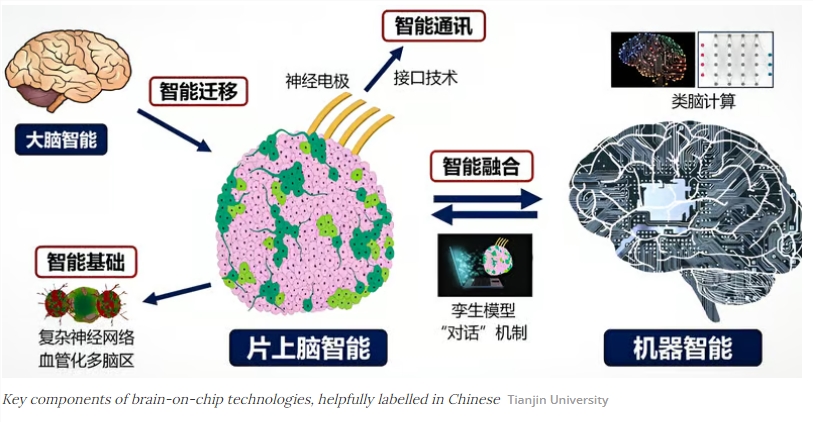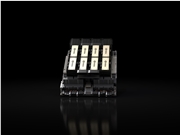The research team at Tianjin University has recently achieved a remarkable breakthrough with the development of MetaBOC, the world's first open-source on-chip brain intelligence complex information interaction system. This technology not only opens new possibilities for brain-computer interface technology but also promises to have a profound impact on cutting-edge fields such as hybrid intelligence and neuromorphic computing.
MetaBOC (BOC stands for brain-on-chip) was collaboratively developed by the Tianjin University Brain-Computer Interaction and Human-Machine Symbiosis Haihe Laboratory team in conjunction with Southern University of Science and Technology, among others. This system, by connecting human brain organoids to computer chips, can control robots to perform actions such as obstacle avoidance, tracking, and grasping, enabling a variety of neuromorphic computing inspired tasks.

The core of this research lies in the "brain-on-chip," which consists of the "chip" (electrode chip) and the "brain" (cultured brain outside the body). Through stem cell culture technology, a "brain-like tissue" with biological brain intelligence functions is created outside the human body, and an electrode chip is attached to it, allowing scientists to debug it or send signals externally to achieve specific functions.
Ming Dong, Vice President of Tianjin University, stated that unlike traditional technologies primarily focusing on the human or other biological brains as experimental subjects, the brain-on-chip will become an important emerging branch in the field of brain-computer interfaces. The two main breakthroughs of this research are: the shift from two-dimensional to three-dimensional cell culture, providing a more complex neural computing network for the brain-on-chip; and the integration of artificial intelligence algorithms, enabling attempts in the field of hybrid intelligence.
As the technology advances rapidly, ethical issues arise as well. Will the brain-on-chip develop consciousness? Will artificial intelligence develop consciousness? These questions are becoming increasingly real. Additionally, the maintenance of the "wetware" components is a challenge, requiring them to be kept alive and provided with a suitable growth environment.
This research by the Tianjin University team is not only a technological breakthrough but also a profound exploration into understanding human intelligence. As we approach the mysterious technological singularity, the day when artificial intelligence surpasses human intelligence may no longer be far off.
Reference: https://newatlas.com/robotics/brain-organoid-robot/









